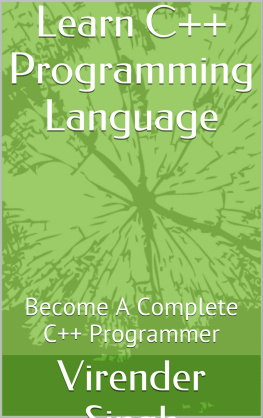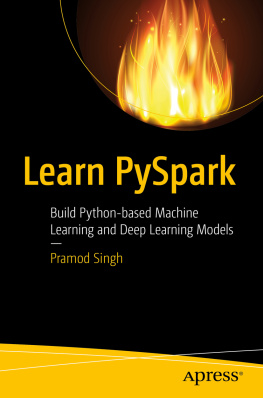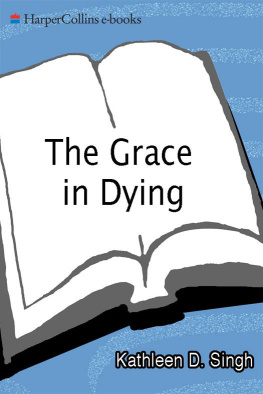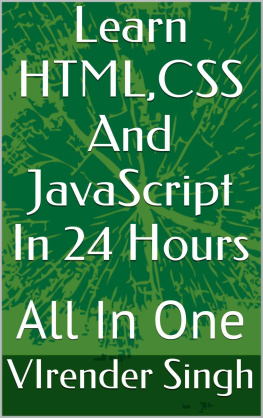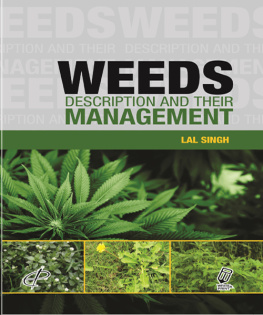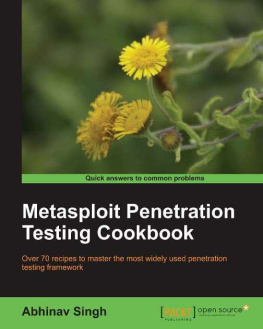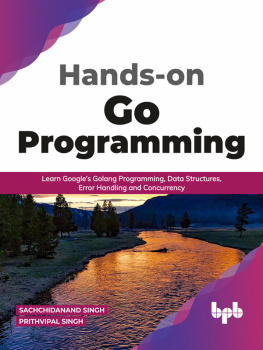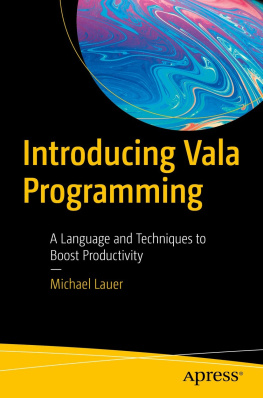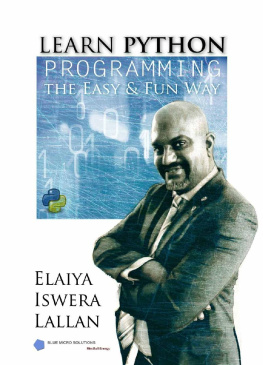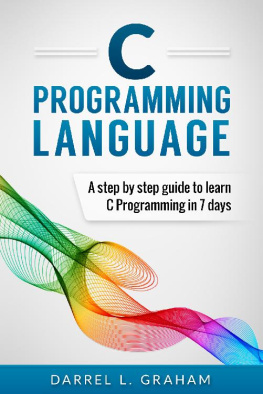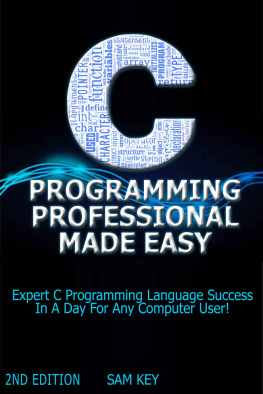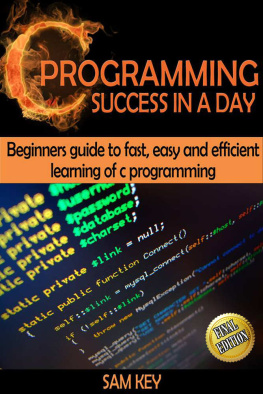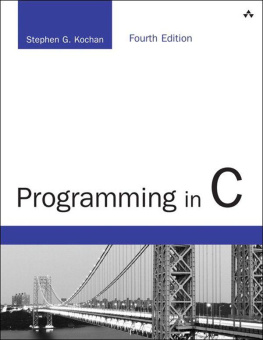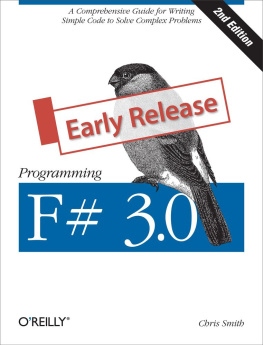Singh - Learn C++ Programming Language
Here you can read online Singh - Learn C++ Programming Language full text of the book (entire story) in english for free. Download pdf and epub, get meaning, cover and reviews about this ebook. year: 2015, genre: Computer. Description of the work, (preface) as well as reviews are available. Best literature library LitArk.com created for fans of good reading and offers a wide selection of genres:
Romance novel
Science fiction
Adventure
Detective
Science
History
Home and family
Prose
Art
Politics
Computer
Non-fiction
Religion
Business
Children
Humor
Choose a favorite category and find really read worthwhile books. Enjoy immersion in the world of imagination, feel the emotions of the characters or learn something new for yourself, make an fascinating discovery.
Learn C++ Programming Language: summary, description and annotation
We offer to read an annotation, description, summary or preface (depends on what the author of the book "Learn C++ Programming Language" wrote himself). If you haven't found the necessary information about the book — write in the comments, we will try to find it.
Singh: author's other books
Who wrote Learn C++ Programming Language? Find out the surname, the name of the author of the book and a list of all author's works by series.
Learn C++ Programming Language — read online for free the complete book (whole text) full work
Below is the text of the book, divided by pages. System saving the place of the last page read, allows you to conveniently read the book "Learn C++ Programming Language" online for free, without having to search again every time where you left off. Put a bookmark, and you can go to the page where you finished reading at any time.
Font size:
Interval:
Bookmark:
Contents
Preface v
Preface to the Fourth Edition ...................................................... v
Preface to the Third Edition ........................................................ ix
Preface to the Second Edition ..................................................... xi
Preface to the First Edition ......................................................... xii
18. Overloading ................................................................................. 527
30. Standard Library Summary ......................................................... 859
All problems in computer sciencecan be solved by another level of indirection,except for the problem of too many layers of indirection.
David J. Wheeler
C++ feels like a new language. That is, I can express my ideas more clearly, more simply, andmore directly in C++11 than I could in C++98. Furthermore, the resulting programs are betterchecked by the compiler and run faster.
In this book, I aim for completeness. I describe every language feature and standard-librarycomponent that a professional programmer is likely to need. For each, I provide:
Rationale: What kinds of problems is it designed to help solve? What principles underliethe design? What are the fundamental limitations?
Specification: What is its definition? The level of detail is chosen for the expert programmer; the aspiring language lawyer can follow the many references to the ISO standard.
Examples: How can it be used well by itself and in combination with other features? Whatare the key techniques and idioms? What are the implications for maintainability and performance?
The use of C++ has changed dramatically over the years and so has the language itself. From thepoint of view of a programmer, most of the changes have been improvements. The current ISOstandard C++ (ISO/IEC 14882-2011, usually called C++11) is simply a far better tool for writingquality software than were previous versions. How is it a better tool? What kinds of programmingstyles and techniques does modern C++ support? What language and standard-library features support those techniques? What are the basic building blocks of elegant, correct, maintainable, andefficient C++ code? Those are the key questions answered by this book. Many answers are not thesame as you would find with 1985, 1995, or 2005 vintage C++: progress happens.
C++ is a general-purpose programming language emphasizing the design and use of type-rich,lightweight abstractions. It is particularly suited for resource-constrained applications, such asthose found in software infrastructures. C++ rewards the programmer who takes the time to master
techniques for writing quality code. C++ is a language for someone who takes the task of programming seriously. Our civilization depends critically on software; it had better be quality software.
There are billions of lines of C++ deployed. This puts a premium on stability, so 1985 and1995 C++ code still works and will continue to work for decades. However, for all applications,you can do better with modern C++; if you stick to older styles, you will be writing lower-qualityand worse-performing code. The emphasis on stability also implies that standards-conformingcode you write today will still work a couple of decades from now. All code in this book conformsto the 2011 ISO C++ standard.
This book is aimed at three audiences:
C++ programmers who want to know what the latest ISO C++ standard has to offer,
C programmers who wonder what C++ provides beyond C, and
People with a background in application languages, such as Java, C#, Python, and Ruby,
looking for something closer to the machine something more flexible, something offering better compile-time checking, or something offering better performance.Naturally, these three groups are not disjoint a professional software developer masters more than
just one programming language.
This book assumes that its readers are programmers. If you ask, Whats a for-loop? or
Whats a compiler? then this book is not (yet) for you; instead, I recommend my Programming:
Principles and Practice Using C++ to get started with programming and C++. Furthermore, I
assume that readers have some maturity as software developers. If you ask Why bother testing?
or say, All languages are basically the same; just show me the syntax or are confident that there
is a single language that is ideal for every task, this is not the book for you.
What features does C++11 offer over and above C++98? A machine model suitable for modern
computers with lots of concurrency. Language and standard-library facilities for doing systemslevel concurrent programming (e.g., using multicores). Regular expression handling, resource
management pointers, random numbers, improved containers (including, hash tables), and more.
General and uniform initialization, a simpler for-statement, move semantics, basic Unicode support,
lambdas, general constant expressions, control over class defaults, variadic templates, user-defined
literals, and more. Please remember that those libraries and language features exist to support programming techniques for developing quality software. They are meant to be used in combination
as bricks in a building set rather than to be used individually in relative isolation to solve a specific problem. A computer is a universal machine, and C++ serves it in that capacity. In particular,
C++s design aims to be sufficiently flexible and general to cope with future problems undreamed
of by its designers.
Acknowledgments
In addition to the people mentioned in the acknowledgment sections of the previous editions, Iwould like to thank Pete Becker, Hans-J. Boehm, Marshall Clow, Jonathan Coe, Lawrence Crowl,Walter Daugherty,J.Daniel Garcia, Robert Harle, GregHickman, Howard Hinnant, BrianKernighan, Daniel Krgler, Nevin Liber, Michel Michaud, Gary Powell, Jan Christiaan van Winkel,and Leor Zolman. Without their help this book would have been much poorer.
Thanks to Howard Hinnant for answering many questions about the standard library.Andrew Sutton is the author of the Origin library, which was the testbed for much of the discussion of emulating concepts in the template chapters, and of the matrix library that is the topic ofChapter 29. The Origin library is open source and can be found by searching the Web for Originand Andrew Sutton.
Thanks to my graduate design class for finding more problems with the tour chapters thananyone else.
Had I been able to follow every piece of advice of my reviewers, the book would undoubtedlyhave been much improved, but it would also have been hundreds of pages longer. Every expertreviewer suggested adding technical details, advanced examples, and many useful developmentconventions; every novice reviewer (or educator) suggested adding examples; and most reviewersobserved (correctly) that the book may be too long.
Thanks to Princeton Universitys Computer Science Department, and especially Prof. BrianKernighan, for hosting me for part of the sabbatical that gave me time to write this book.
Thanks to Cambridge Universitys Computer Lab, and especially Prof. Andy Hopper, for hosting me for part of the sabbatical that gave me time to write this book.
Thanks to my editor, Peter Gordon, and his production team at Addison-Wesley for their helpand patience.
Font size:
Interval:
Bookmark:
Similar books «Learn C++ Programming Language»
Look at similar books to Learn C++ Programming Language. We have selected literature similar in name and meaning in the hope of providing readers with more options to find new, interesting, not yet read works.
Discussion, reviews of the book Learn C++ Programming Language and just readers' own opinions. Leave your comments, write what you think about the work, its meaning or the main characters. Specify what exactly you liked and what you didn't like, and why you think so.

